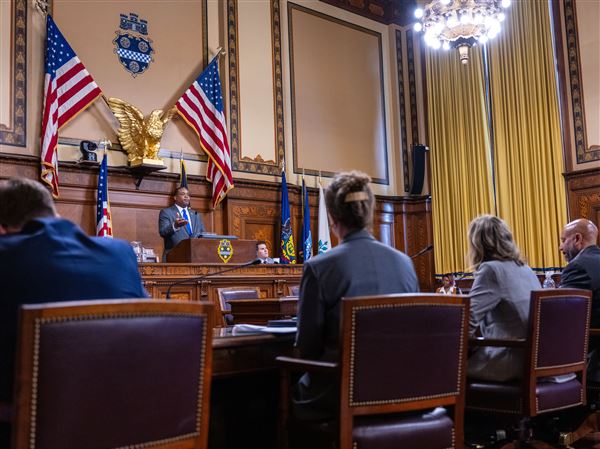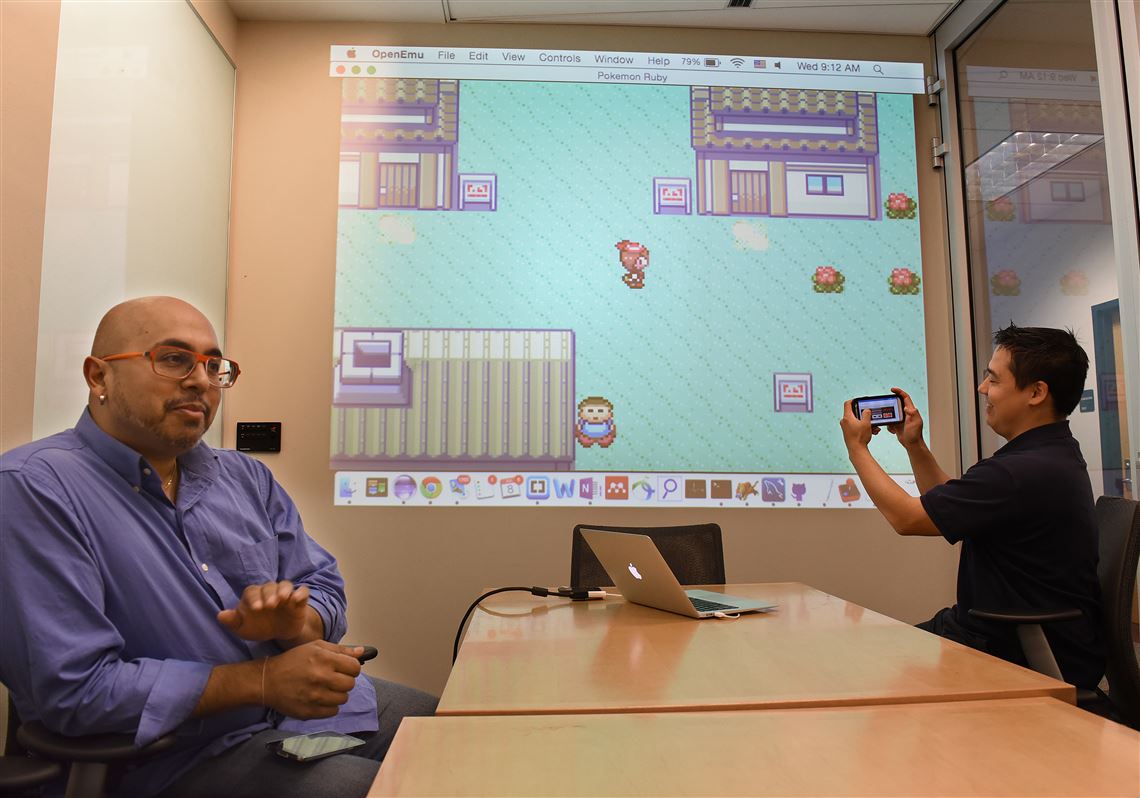Pittsburgh residents who dream of the day that the region’s bridges and roads can talk to their Internet-connected cars to plot the best pathway around potholes should be willing guinea pigs in Carnegie Mellon University’s latest experiment.
After claiming the title of the world’s first university with an integrated computer network in the 1980s, CMU is now gunning for the designation as frontier for the Internet of Things — a term for products with Internet connectivity built into them — by turning its Oakland campus into a living lab.
And it plans to make all of Pittsburgh part of the experiment.
“Our goal is to, within a year, turn a lot of the space we have access to as faculty into smart spaces that students, faculty, staff and visitors can interact with. Then our goal is to push it out to the city,” said Anind K. Dey, director of CMU’s Human-Computer Interaction Institute and lead investigator for the undertaking.
In coming months, everything from coffee pots to bus stops on campus will be fitted with wireless sensors and accelerometers for GIoTTO — the name of a Google-sponsored project — that will turn everyday items into Web-enabled tools and encourage cooperation between those items and existing Internet-connected products such as smartphones or smart thermostats.
In other words, someday soon, an Internet-connected car could tell an Internet-connected coffee pot its owner has arrived and it’s time to make a fresh cup of joe. Or apps such as Snap To It — a CMU creation that allows users to connect with printers, projectors and even video games with the snap of a smartphone pic — will be available for use beyond the Forbes Avenue corridor.
Mr. Dey said putting sensors on bridges to detect wear and tear, in hospitals to help visitors find their way around and in stadiums that push information to fans are only a few applications that came immediately to mind for the region.
Those were more than enough to sell Mayor Bill Peduto, who wrote a letter of endorsement encouraging Google to choose CMU for the experiment.
For Google’s part, the idea of expanding the experiment beyond a controlled environment convinced the search engine giant, which has offices in Larimer, to choose CMU. The company gave the university $500,000 and has allowed its researchers access to unreleased technologies that could help advance the project.
“From the many excellent proposals received, we’ve chosen Carnegie Mellon to lead because of their vision for a living laboratory, validating system design through daily use,” said Maggie Johnson, Google’s director of university relations in a news release.
CMU professors Yuvraj Agarwal, Chris Harrison, Jason Hong, Andrew Moore, Anthony Rowe and Mahadev Satyanarayanan will take the lead on initial development, while professors Norman Sadeh, Lorrie Cranor and Lujo Bauer will create privacy tools that protect critical data gathered through Internet of Things products.
Teams from Cornell, Stanford and the University of Illinois will research security solutions for the project.
Once researchers break in the system later this year, they’re hoping anyone on CMU’s campus with a bright idea will step up to the plate to design apps. Researchers will unroll an apps store on campus that allows users to share scripts, actions, sensor feeds and other information needed to create new technologies.
Mr. Dey said the main idea is to create a platform that lets connected devices communicate — and to test privacy and security implications on a large scale.
For as much as the information collected will help Google and other tech companies gauge future Internet of Things plans, it could also help the city consider the best courses of action in several areas.
“You can examine how people are actually using spaces in the city, which bridges are actually in use every day. I’m sure they have a lot of this information, but this would be adding to that information, making it much more transparent so everybody has a say in how the city is run,” he said.
Given that the university hopes to outfit David L. Lawrence Convention Center, Pittsburgh International Airport and some UPMC hospitals with sensors — with permission, of course — that’s a lot of information and a whole lot of sensors.
When it’s all said and done, how many sensors should Pittsburghers expect to encounter?
“Millions,” Mr. Dey said.
Deborah M. Todd: dtodd@post-gazette.com or 412-263-1652.
First Published: July 9, 2015, 4:00 a.m.



















